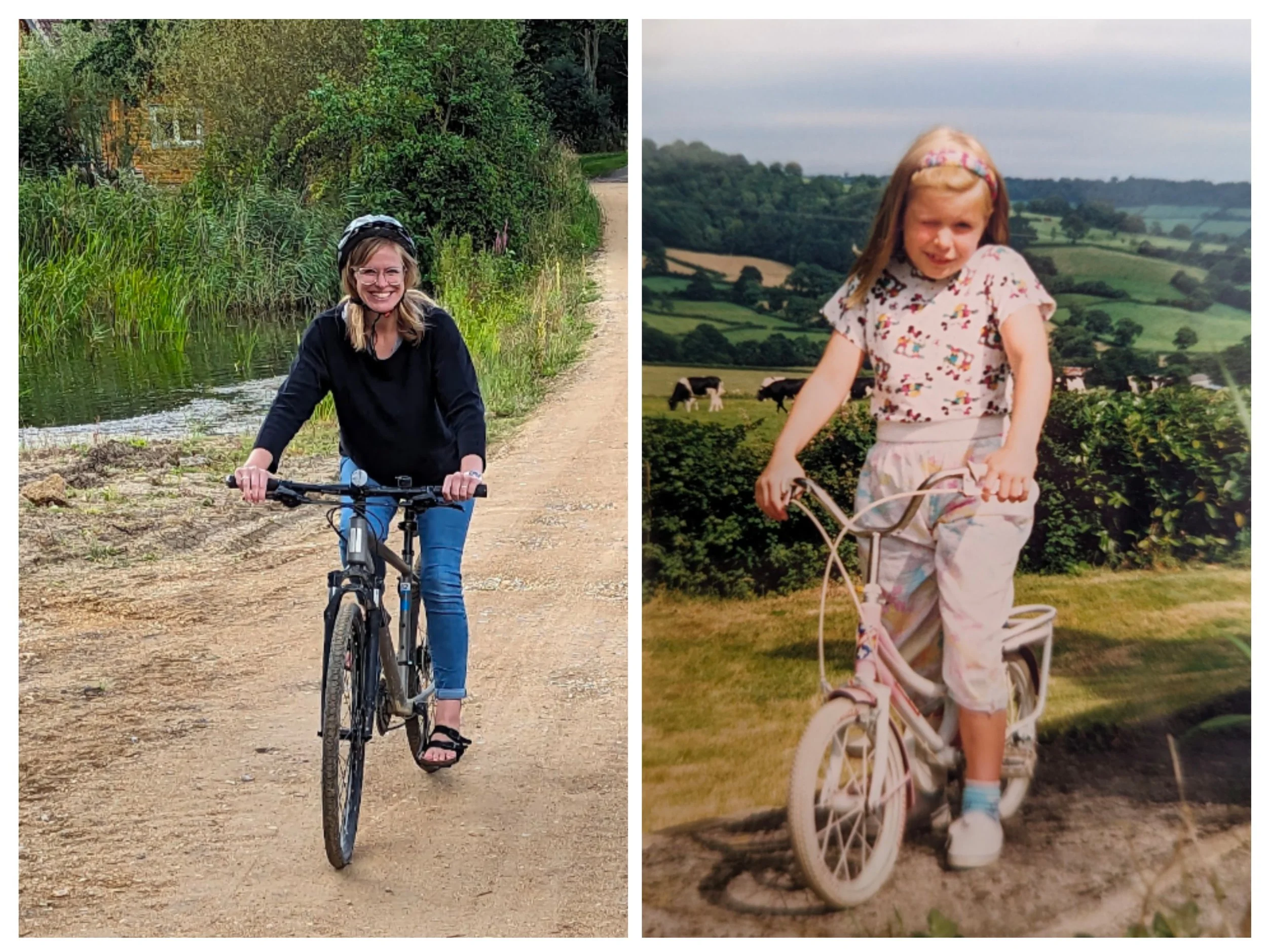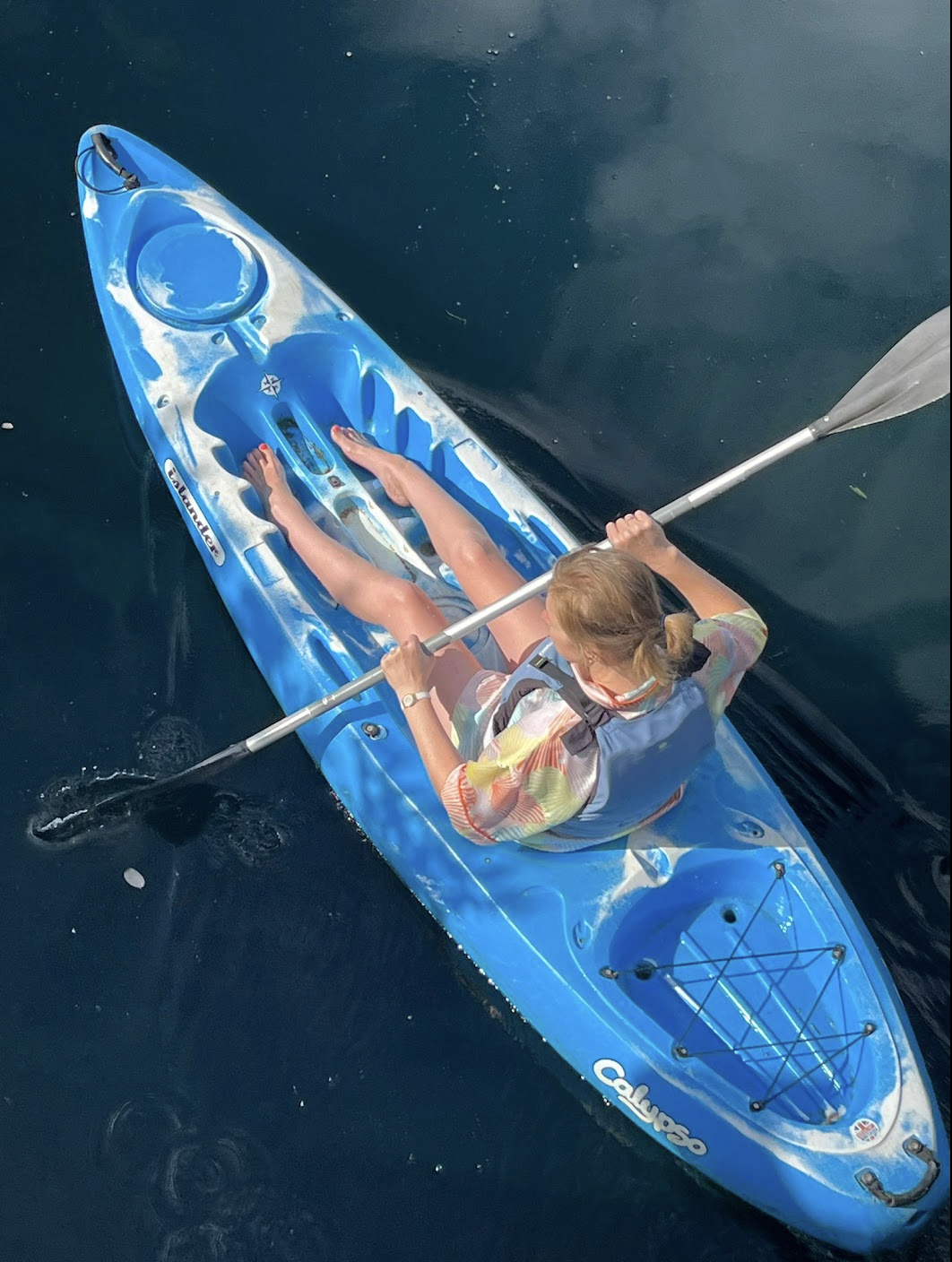My children attend swimming classes at a local leisure centre, where they work through a scheme of levels. Each stage has its own coloured swimming cap, which pleasingly makes up a rainbow once you’ve worked through them all. You start at stage 1 (red cap) and move up through orange, yellow, green, blue and finish at stage 6 — the ultimate goal and pinnacle of achievement — purple cap. Within each stage there is a criteria to fulfil and there are extra badges to earn along the way. During each lesson the children are marked on various competencies and on a handy online dashboard parents and carers can see how their child is progressing in each discipline (not assessed/needs improvement/fair and good), with a total percentage towards completion. It’s visually striking and motivating in tangible ways. How clever. There’s an overall percentage to keep you motivated and the beautiful visual of collecting a rainbow — something for everyone. And it works. I expect some of us are more predisposed to wanting to collect a whole set and complete something given the dangling carrot of prizes along the way. The games industry hangs off this human trait and takes advantage of our inbuilt need to collect. So I’m curious as to where this comes from, because it starts early.
There’s been interesting thought and discussion about the roots of collecting. An article by Christian Jarrett, ‘Why do we collect things? Love anxiety or desire’, looks at emotional drivers such as nostalgia and existential anxieties, which we soothe with collections of things. Sigmund Freud posed the notion of feeling more in control and achieving a sense of order through owning specific objects. And by actually owning them and calling them ours, we value them more (this is known as the Endowment Effect). The act of collating objects in this way helps us to create and affirm our sense identity.
Comedian Mae Martin has a great standup piece about humans collecting lived experiences like little snow globes that we furnish our brains with and keep stored, ready to show off as proof of our existence and who we are. Doesn’t that neatly visualise how delicate our sense of identity and worth can be? All these possibilities point to the fragility of humankind and an inbuilt need to be in control of something and to have something to show for ourselves.
Research has been carried out looking into the power of gamification in the real world to motivate achievement and completion of tasks. A study in Science Direct concluded that elements such as appearing on a leaderboard and being awarded badges increase perception of the meaningfulness of a task and also heighten an individual’s sense of mastery of a skill.
Badges hard earned by my children.
Returning to the swimming, my daughter is so desperate to move up to the next coloured cap as soon as she can that she’s not even thinking about the swimming or improving her style, she just wants the next cap, whether it’s appropriate or not. That’s led us to have conversations about being in the moment. With her gaze firmly fixed on the next milestone, she’s missing out on the enjoyment of the current lesson. What purpose would it serve moving onto green cap if she’s not ready for it? Surely that will make for a harder transition and a tough time struggling in a lesson that’s beyond her capabilities — a little fish in a big pond. Do we become so focussed on looking for the next step, the next promotion, the next activity, the next thing to convince ourselves we’re moving and growing and developing, that we miss what’s happening in the moment? There’s a lot to be said for slowing down and taking stock. Although modern western society might try to tell you otherwise.
There’s been a subtle trend emerging on social media of ‘glamourising the grind’. The work hard/play hard ethos, which has its merits up to a point, but also threatens to burn us out while we try to do it all. The photo of the morning coffee at the desk at 7am shared to let the world know that you’re putting in the hours. Plus you did a run at sunrise and you’ll be clocking off late in the evening. I wonder what message that really sends? Are you okay? Are you looking after yourself? Or are you ruled by your schedule without a moment to connect with yourself and find out what you truly need? Have you taken on too much? If needs must, then maybe it’s a quiet cry for help.
So, what is stopping us from slowing down and is this something we need to be addressing with younger generations, to stop them from falling into this fast paced trap of achievement and accumulation?
‘Leaning Into Slowing Down’ highlights how a strong feeling of ‘should’ is a blocker to slowing down. An internal voice or external influence leading us to believe that we ‘should’ be doing more and achieving more. Slowing down and going against the cultural grain takes courage. It means saying “no” to more things and being disciplined in guarding your time. I once heard somebody say it’s worth remembering that by saying “yes”, you’re also saying “no” to hundreds of opportunities. That hit me powerfully, because I’d always considered “yes” to be the only positive path, but in truth a “no” can open up other avenues. Maybe declining an invitation to go out means that you can have the rest you need to feel energised for a new opportunity tomorrow. That’s worth a moment’s pause.
For those who believe in perfect timing, maybe there’s a reason why that promotion isn’t coming through just yet, or that train is late, or you’re not moving up to green cap. Maybe it’s fine to just be in this moment for now and see what emerges. It’s okay that it hasn’t all happened yesterday.
A friend told me about a theory called “the shoelace effect”, which stuck happily in my mind.
“An apparently trivial incident, item or decision turns out to have massive repercussions”.
So, there might be a reason why you had to stop and do up your shoelace, you might not know what it was, but in that moment your path altered.





